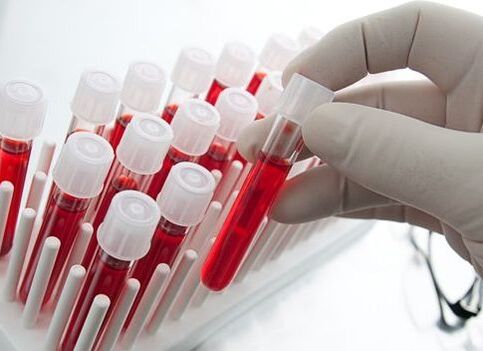Your joints are painful, swollen, or difficult to move. What should I do? Which doctor should I contact to resolve this issue? What is the difference between arthritis and joint disease? In our bodies, everything works, works, and wears out as a result. Healthy cells repair themselves, but if that doesn't happen, a cause and a cure need to be found.
attention! Do not self-medicate, the symptoms may go away, but the cause remains!
In small towns or villages, first of all, if the child has a problem, they go to the GP - go to the paediatrician, who has already determined which narrow specialist to refer you to.
If you've been diagnosed with arthritis, don't confuse it with arthropathy. What is the difference between arthritis and joint disease? Now we will understand how these diseases are different.
What is the difference between arthritis and joint disease?
The first difference in etiology:
- Arthritis can occur as a result of injury or infection, dysfunction of the metabolic system, and is characterized by an inflammatory process.
- Osteoarthritis - is a chronic, joint wear and tear.
The symptoms of the disease are also different - this is the second sign:
- Arthritis - can occur in a latent form (chronic) or be felt immediately (acute form). It manifests as pain, fever, swelling, and changes in skin color.
- Arthropathy is not necessarily accompanied by painful symptoms. Sometimes pain after prolonged rest but goes away after development, with a creaking or clicking sound when moving.
Arthropathy affecting people over 50, athletes or consequences of severe fractures - after age 40.
The third is the nature of the damage to the body:
- Arthritis affects the entire body. Inflammatory processes affect the function of internal organs: heart, liver, kidneys.
- Arthropathy - affects only the joints.
Fourth - how exactly the joint is damaged:
- Arthritis can occur in any joint.
- Arthropathy likes to affect the connective tissue that is most affected by the load. These are the knee, ankle, hip, and big toe joints.
In addition, scientific research shows that 2% of people on earth suffer from arthritis compared to 10% of people with arthritis.
What is the diagnosis based on?

General blood test - blood in the fingers. If arthropathy does not normally change the composition of the blood, then with arthritis, the levels of white and red blood cells increase.
Rheumatic tests and biochemical analysis are done - it is taken from a fasting vein.
Arthritis does not change the structure of the blood, and with arthritis, markers of inflammation increase.
Rheumatoid arthritis is manifested by the presence of rheumatoid factor in the blood, accompanied by gout-elevated uric acid.
X-rays - show what stage the disease is in, if changes in bone structure - joints. MRI and CT scans can also be ordered.
Which doctor treats arthritis and joint disease?

As mentioned, first we visit the GP. He examines and refers to a rheumatologist who examines, diagnoses and plans treatment.
What is the difference between arthritis and joint disease? If a doctor diagnoses arthropathy, he will prescribe additional tests to determine the stage of the disease.
With the help of injections, ointments, only drugs can be used for treatment. First, doctors recommend lightening the load and taking chondroprotective agents. To improve blood circulation, a series of exercises is recommended.
Treatment should be complex and therefore may additionally involve doctors in the following areas of expertise: physiotherapist, massage therapist, physiotherapist, surgeon.
If the connective tissue develops disease, they can be sent to a nursing home for further treatment and rehabilitation.
An arthrologist is a doctor who deals with joint problems. However, these specialists are only found in large clinics and it is difficult to find them.
If the disease progresses and enters a difficult stage, then you should contact a plastic surgeon. Depending on treatment needs, he can perform two types of surgery: organ-sparing and internal repair.
To get the best possible treatment at each stage, specialists from different fields are involved, but a therapist or rheumatologist oversees the entire treatment.
Which doctor treats arthritis depends on the cause.
- Since injury is a driving force, it is necessary to see a traumatologist in order to develop.
- Rheumatoid - Immune Disease Specialist.
- Metabolic disorders (gout) - nutritionists, endocrinologists, rheumatologists.
- Maxillofacial joint problems: Dentist, ENT.
- Supplementation - surgery requires intervention by a surgeon.
Doctors treat in several directions: stop further damage and restore the ability of connective tissue.
Treatment should be started as soon as you feel unwell. As a result, you will feel relief quickly and the disease will do little damage to your body.
treatment plan
In each case, doctors will treat according to the cause of the arthritis, but there is a standard regimen:
- Non-steroidal anti-inflammatory drugs (NSAIDs). First, a course of intramuscular, intravenous or intra-articular injections is given, followed by ointment.
- Antispasmodics (for muscle cramps).
- Antidepressants.
- Anesthetic.
- Gastroprotectant, protects the stomach.
- Prescription vitamin complex.
- Chondroprotective agents - they improve the quality of cartilage tissue.
- Therapeutic diet.
- physiotherapy.
- Massage, acupuncture.
The treatment regimen is supplemented according to the course of the disease. The recovery process is long and strenuous, and recovery requires a lot of work from you.



















